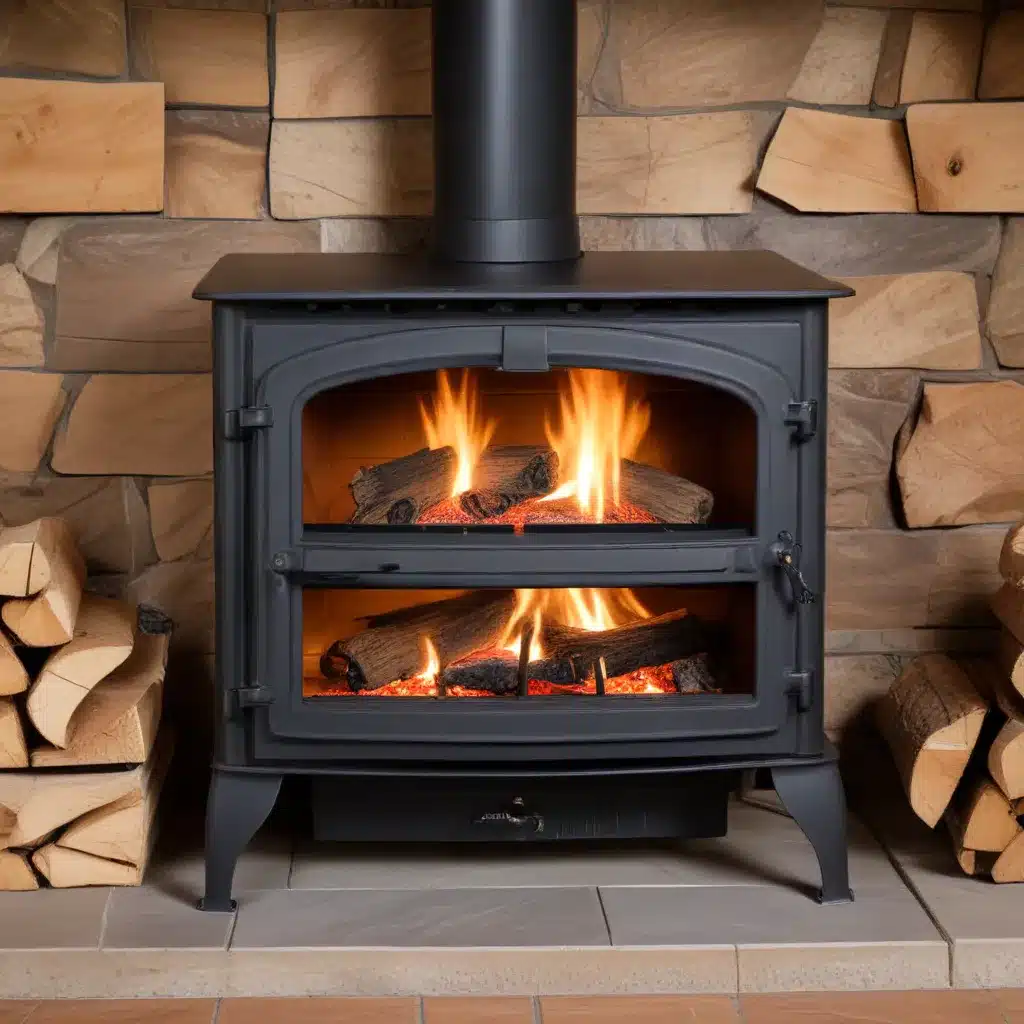
Understanding the Importance of Seasoned Wood
As a seasoned expert in wood stoves and heating solutions, I’ve witnessed firsthand the significant impact that using properly seasoned wood can have on the efficiency and performance of your wood stove. Whether you’re a new homeowner exploring alternative heating options or a seasoned wood stove enthusiast, understanding the benefits of seasoned wood is crucial for maximizing the effectiveness of your heating system.
Seasoning wood involves allowing it to dry out over time, typically for 6-12 months, until the moisture content reaches an optimal level, usually around 20% or less. This process is essential because it directly affects the way the wood burns in your wood stove. Unseasoned, or “green,” wood contains a high amount of moisture, which can lead to a number of problems when used as fuel.
The Drawbacks of Burning Unseasoned Wood
When you burn unseasoned wood in your wood stove, the high moisture content can cause several issues that diminish the overall efficiency and heating performance of your system. Some of the primary drawbacks include:
-
Reduced Heat Output: Wet wood requires a significant amount of energy to evaporate the excess moisture before it can fully combust and release its heat. This means that a significant portion of the wood’s energy is wasted on drying out the wood, rather than being converted into usable heat for your home.
-
Increased Creosote Buildup: Unseasoned wood tends to produce more smoke and soot, which can lead to a rapid buildup of creosote in your chimney or flue. Creosote is a highly flammable substance that can increase the risk of a dangerous chimney fire if left unchecked.
-
Decreased Burn Time: Wet wood burns less efficiently, resulting in shorter burn times and the need to frequently reload your wood stove. This can be inconvenient and lead to increased fuel consumption.
-
Environmental Concerns: Burning wet wood can also contribute to increased air pollution, as the incomplete combustion of the wood produces more particulate matter and other harmful emissions.
The Benefits of Properly Seasoned Wood
In contrast, using properly seasoned wood in your wood stove can provide a multitude of benefits, both for the performance of your heating system and the overall comfort and efficiency of your home. Some of the key advantages include:
-
Higher Heat Output: Seasoned wood, with its lower moisture content, burns more cleanly and efficiently, converting a greater percentage of its energy into usable heat for your living space. This can translate to a more consistent and comfortable heating experience.
-
Longer Burn Times: Dry, seasoned wood burns more slowly and evenly, allowing you to enjoy longer burn times between reloads. This can lead to reduced fuel consumption and less frequent tending of your wood stove.
-
Reduced Creosote Buildup: The cleaner, more complete combustion of seasoned wood results in less smoke and soot, which in turn reduces the accumulation of creosote in your chimney or flue. This can help to minimize the risk of chimney fires and the need for frequent professional cleaning.
-
Improved Efficiency and Cost Savings: By maximizing the heat output of your wood stove and reducing fuel consumption, using properly seasoned wood can lead to significant cost savings on your heating bills over time.
-
Environmental Benefits: The more efficient combustion of seasoned wood also means fewer harmful emissions and particulates released into the atmosphere, making it a more environmentally friendly heating option.
Choosing and Preparing Seasoned Wood
When selecting wood for your wood stove, it’s important to look for wood that has been properly seasoned. This can be achieved by allowing the wood to dry out for at least 6-12 months, either by stacking it in a well-ventilated area or by using a dedicated wood drying kiln.
Some key factors to consider when choosing seasoned wood include:
- Wood Species: Hardwoods, such as oak, maple, and birch, tend to be denser and provide a longer, more consistent burn compared to softwoods, like pine or fir.
- Moisture Content: Aim for wood with a moisture content of 20% or less, as indicated by a moisture meter or by the wood’s appearance and weight.
- Bark and Color: Seasoned wood will typically have a graying or darkening of the bark, and the wood itself will be lighter in weight compared to unseasoned wood.
When preparing your seasoned wood for use in your wood stove, it’s important to properly split and stack the logs to ensure optimal airflow and drying. This can help maintain the wood’s low moisture content and ensure a clean, efficient burn.
Maintaining Your Wood Stove for Optimal Performance
In addition to using properly seasoned wood, there are other steps you can take to ensure the continued efficiency and performance of your wood stove. Regular maintenance and cleaning, as well as proper stove operation, can all contribute to a more enjoyable and cost-effective heating experience.
Some key maintenance tasks to keep in mind include:
- Chimney Cleaning: Regularly inspecting and cleaning your chimney or flue to remove any built-up creosote or debris.
- Stove Cleaning: Regularly removing ash and soot from the interior of your wood stove to maintain optimal airflow and combustion.
- Gasket Replacement: Replacing worn or damaged gaskets around the stove door to maintain a proper seal and prevent air leaks.
- Proper Loading and Operation: Ensuring that you’re loading your wood stove correctly, using the appropriate air settings, and following best practices for efficient and safe operation.
By combining the use of properly seasoned wood with regular maintenance and proper operation, you can maximize the efficiency, performance, and safety of your wood stove, providing your home with reliable and cost-effective heating for years to come.
Remember, for more information on wood stoves, fireplace maintenance, and sustainable heating solutions, be sure to visit https://woodstoveheaters.com/.



